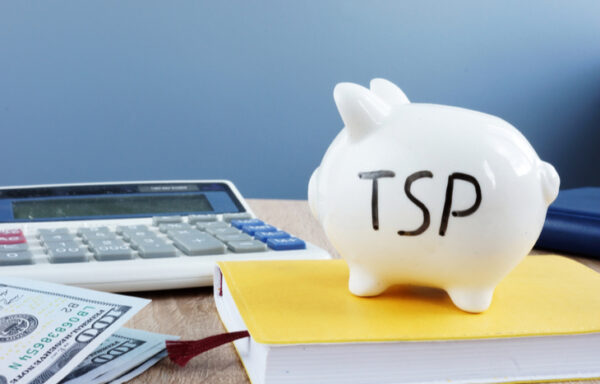Mortgage Tips to Consider
Buying that first home fuels anxiety. You’re entering into the most significant purchase of your life. You’re navigating a new world, that of qualifying for a mortgage. Here are some mortgage tips to help that process move more smoothly.

Getting Started with Mortgage Tips
Prepare for your mortgage quest by optimizing your credit score. The minimum credit score required to obtain a conventional mortgage is 620, but there’s a big caveat. Some lenders, especially in a hot market, do not want to deal with applicants whose credit score is below 740. That’s considered a very good FICO score. An FHA loan requires a minimum credit score of 500, but such applicants require higher down payments.
Lenders consider the credit score when setting mortgage interest rates and fees. In the year before applying for a mortgage, improve your credit score by paying down credit card and other debt. Avoid taking on new credit cards. Pay all bills on time. Keep your credit utilization rate, the amount of revolving credit you use versus the amount available, below 30 percent. For instance, if you have $10,000 worth of credit available on all cards, don’t exceed more than $3,000.
Obtain a free annual credit report from the three major credit reporting agencies, Experian, Equifax and TransUnion. Check your report for inaccuracies. If you find any, such as bills you paid listed as unpaid or late, contact the agency immediately with documentation for correction.
Keep reading for more info on mortgage tips.
Get Pre-approved, Not Pre-qualified
Before you start looking for a house, you must know the amount of a mortgage for which you qualify. Although the terms prequalification and preapproval sound similar, they are not synonymous. Prequalified means the lender has estimated how much you can borrow based on basic information. With pre-approval, the lender has taken a more in-depth look at your finances, which is a great mortgage tip to consider. This includes a credit check. The preapproved applicant receives a letter stating they have been approved for a specific loan amount good for the next 90 days.
Down Payment
Most mortgage loans require a down payment. Twenty percent of the purchase price is typical for many loans. However, there are loans requiring much lower down payments, such as FHA loans.
Keep in mind that if your down payment is less than 20 percent, Private Mortgage Insurance is needed. PMI is necessary until you have acquired 20 percent equity on the home.
Closing Costs
First-time homebuyers may not take closing costs into their calculations. Closing costs usually run between two and five percent of the purchase price. These costs include:
- Appraisal fee: Lenders will not approve mortgages unless the house receives a professional appraisal. They cannot lend a buyer more than the property is worth.
- Loan origination fee
- Application fee
- Credit report fee
- Title search: With a clear title to the property, lenders will not approve a loan.
- Title insurance
- Underwriting fee
Some states and municipalities may charge their own fees, such as transfer taxes.
Mortgage Loan Types
There are various types of mortgage loans and mortgage tips to consider. The best one for your needs depends on your risk tolerance, qualifications and the amount available for a down payment.
- Fixed-rate loans: The advantage of locking in a fixed-rate loan is that you know how much you’ll pay every month for the life of the mortgage. It’s the most popular type of mortgage for that reason.
- Adjustable-rate loans: Risk tolerance plays a major role in whether you should opt for an adjustable-rate loan. Adjustable-rate loans are often a good choice for those only planning to stay in their homes for a few years.
- FHA loans: If you struggle with a down payment or closing costs, or your qualifications are lower, an FHA loan may allow you to become a homeowner. The Federal Housing Administration, established during the Great Depression, offers mortgages with a down payment of just 3.5 percent of the purchase price for many buyers.
- VA loans: There is no need for active duty and veteran members of the military to make a down payment with a VA loan. If you qualify for a VA loan, it’s probably the best loan available. The VA offers flexible standards for eligible borrowers.
- USDA loans: Are you a low or moderate-income applicant looking for a home in a rural area? Would you like 100 percent financing? If so, look into US Department of Agriculture loans.
- Bridge loans: What if you want to build the house of your dreams, but your current home is still on the market? A short-term bridge loan is the answer. This mortgage has that name because it “bridges” the gap between the time it takes to sell the current home and buying or building another dwelling.
Mortgage Tips Considerations
While the home buying process is often complex, these and other mortgage tips can help you land that home more effectively. Here’s one last tip: Don’t buy more of a house than you can comfortably afford. A mortgage calculator, or a mortgage broker, might indicate you can spend a lot more on a house. Sleeping well at night because you aren’t stressed about keeping up with mortgage payments also has value.
[adzerk-get-ad zone="245143" size="4"]About Jane Meggitt
Jane Meggitt specializes in writing about personal finance. Besides investing and planning for retirement, she writes about insurance, real estate, credit cards, estate planning and more. Her work has appeared in dozens of publications, including Financial Advisor, Zack’s, SF Gate and Investor Junkie. A graduate of New York University, Jane lives on a small farm in New Jersey horse country.





